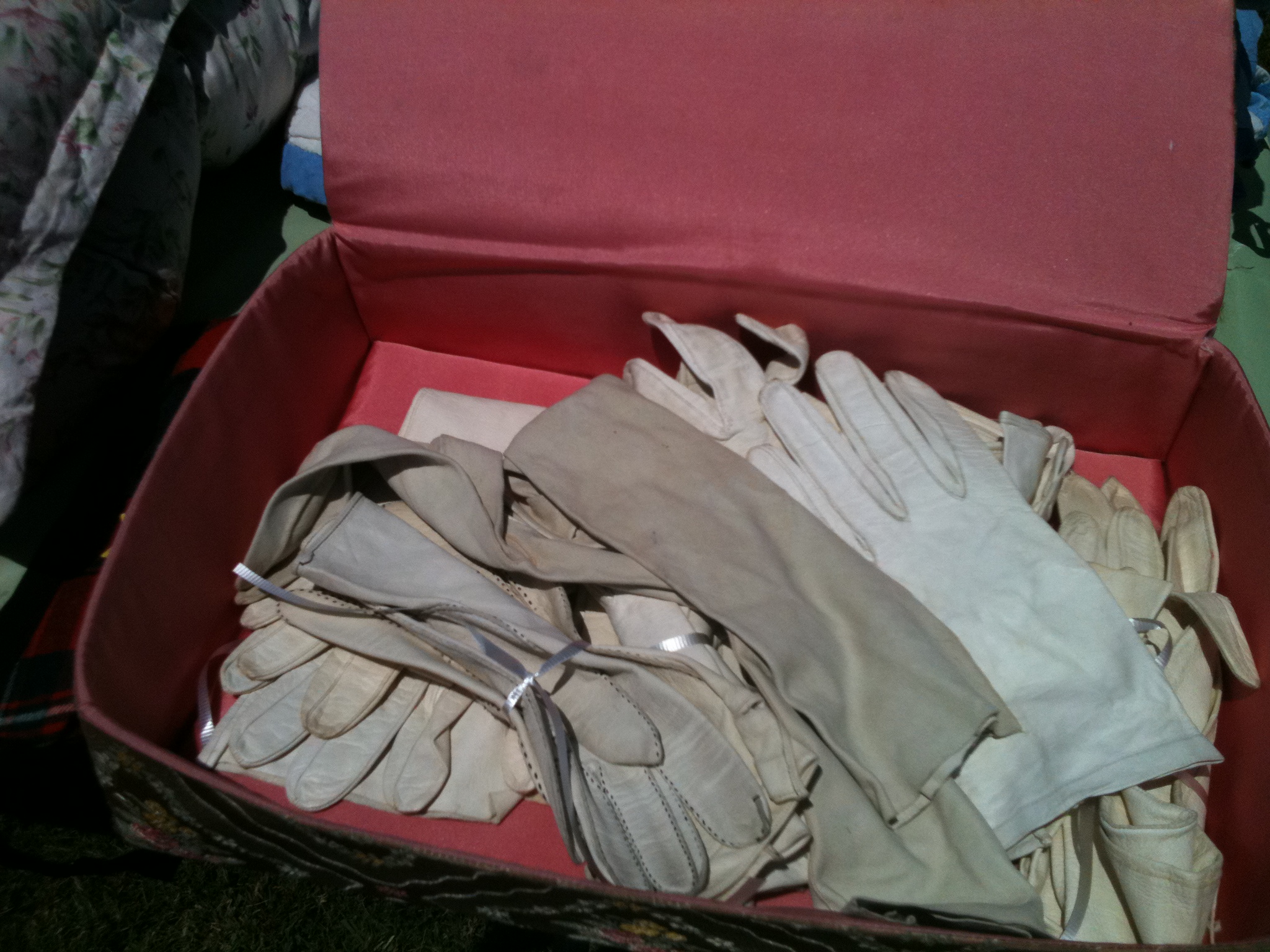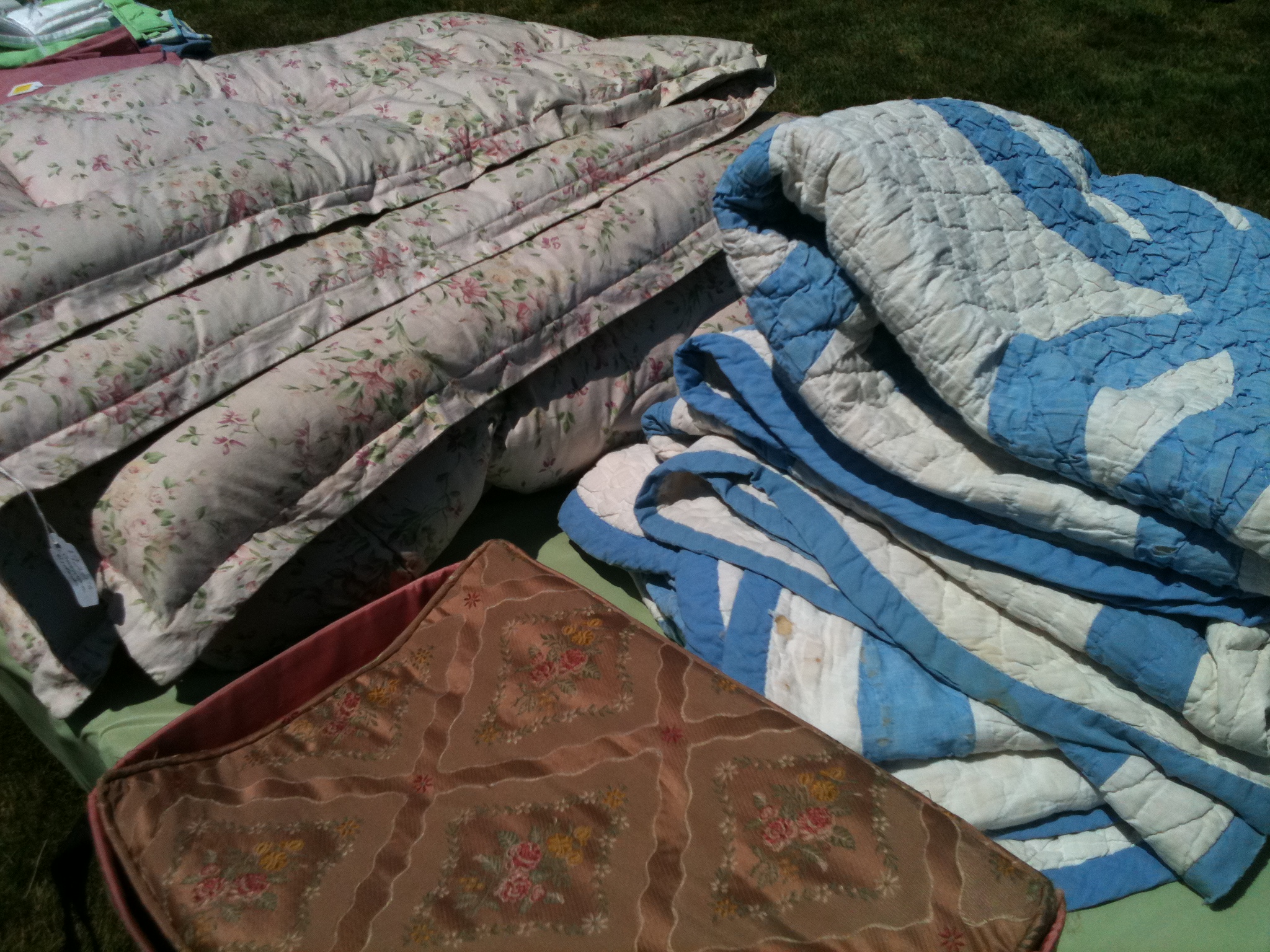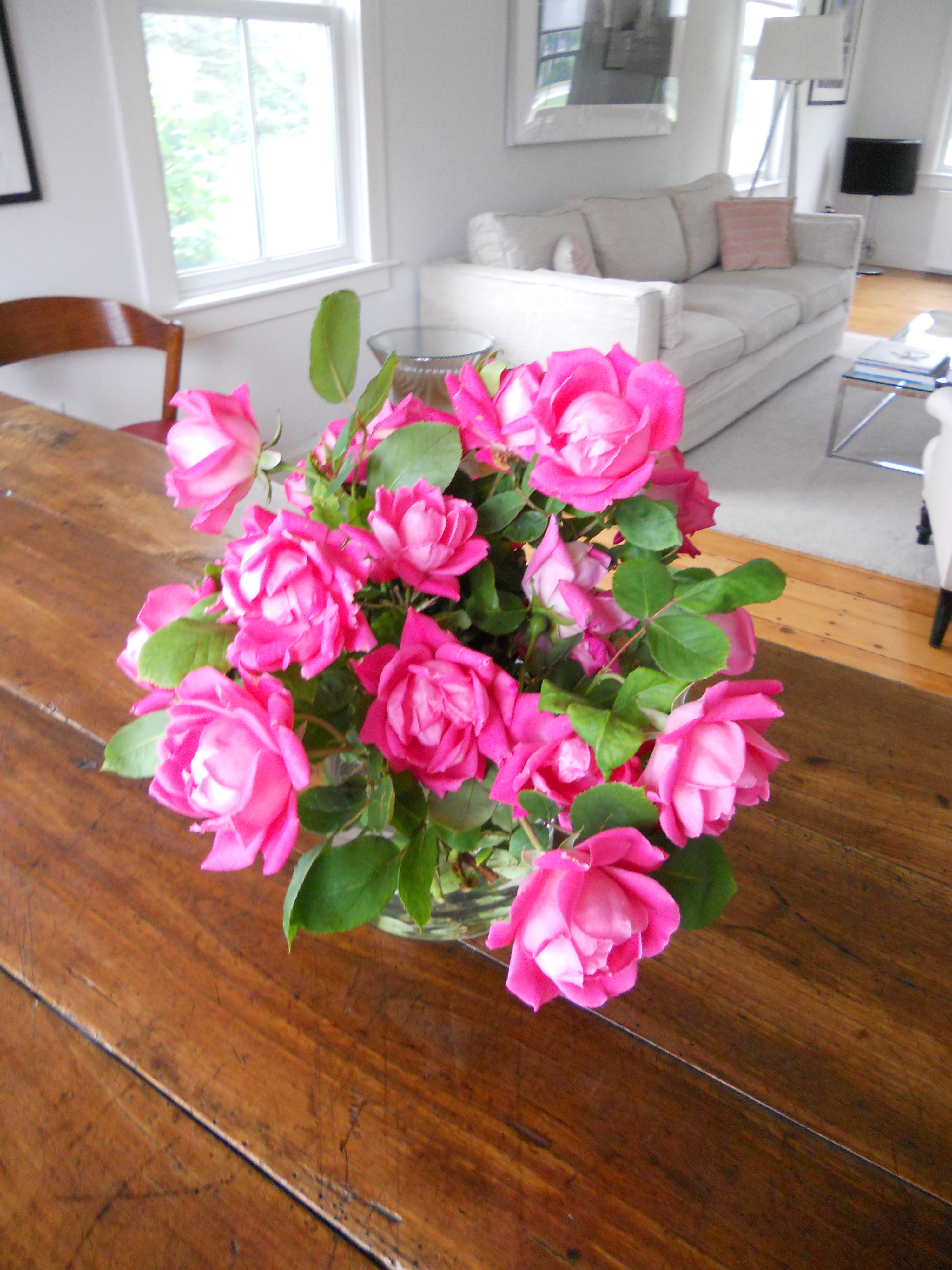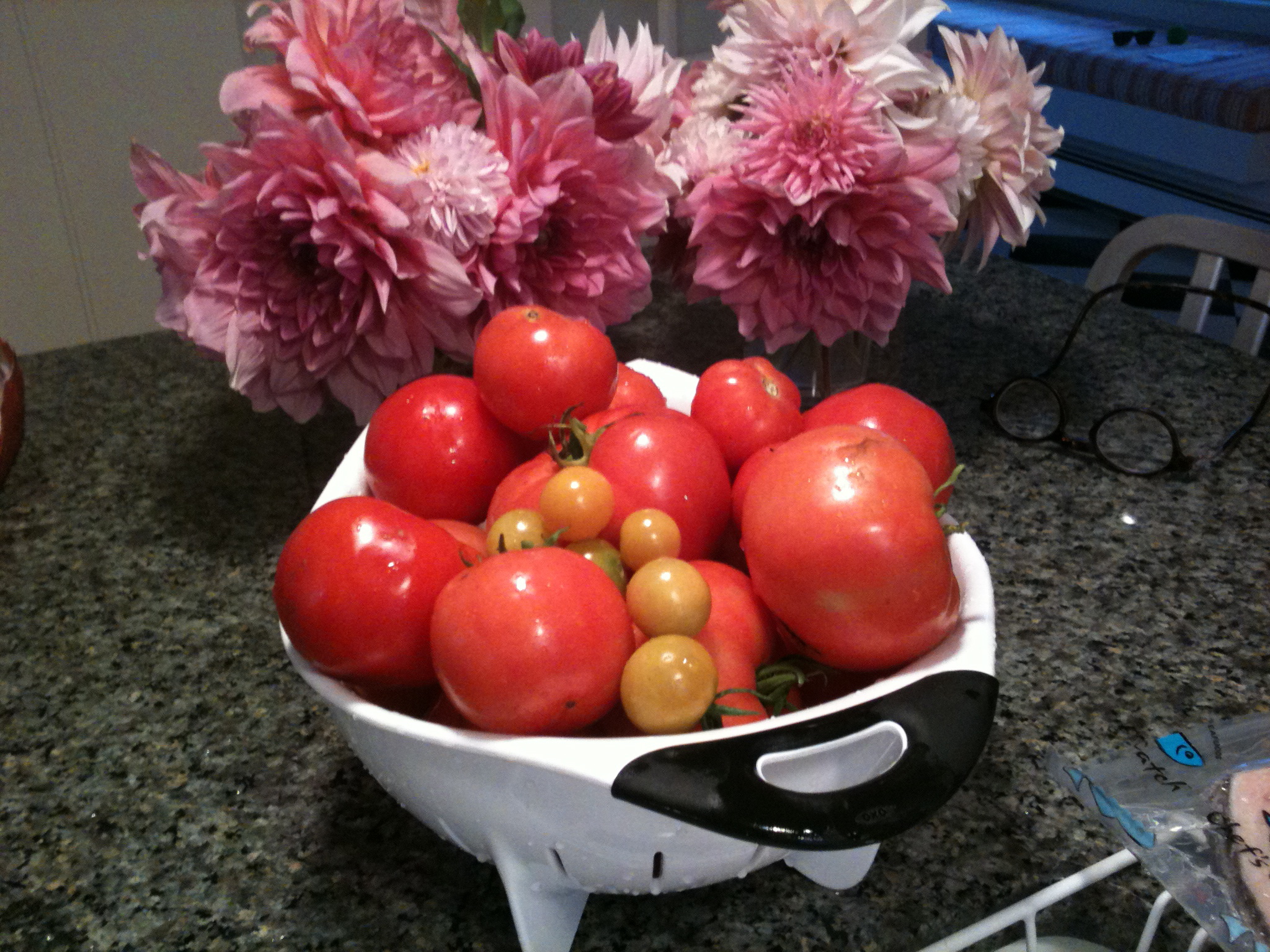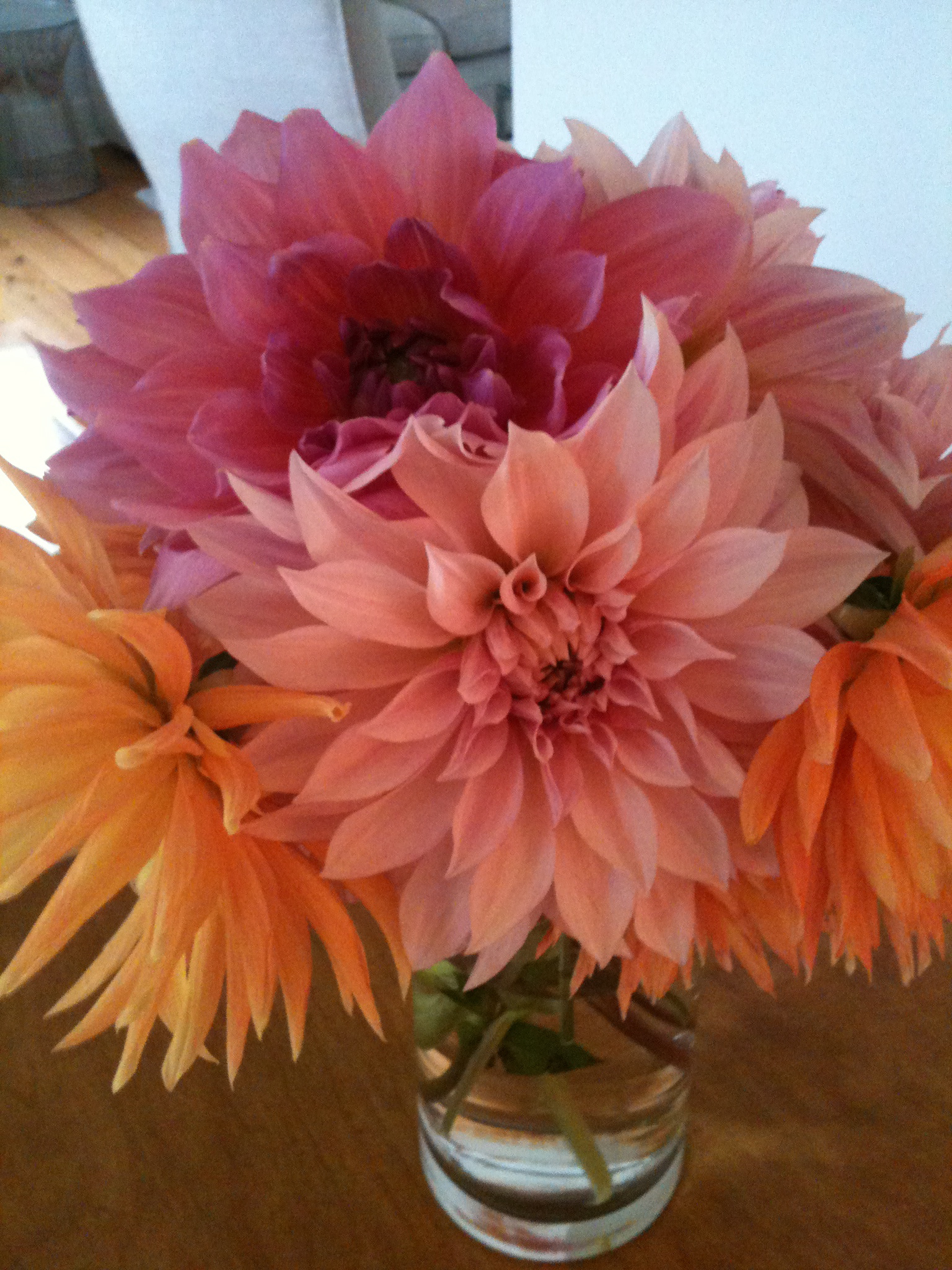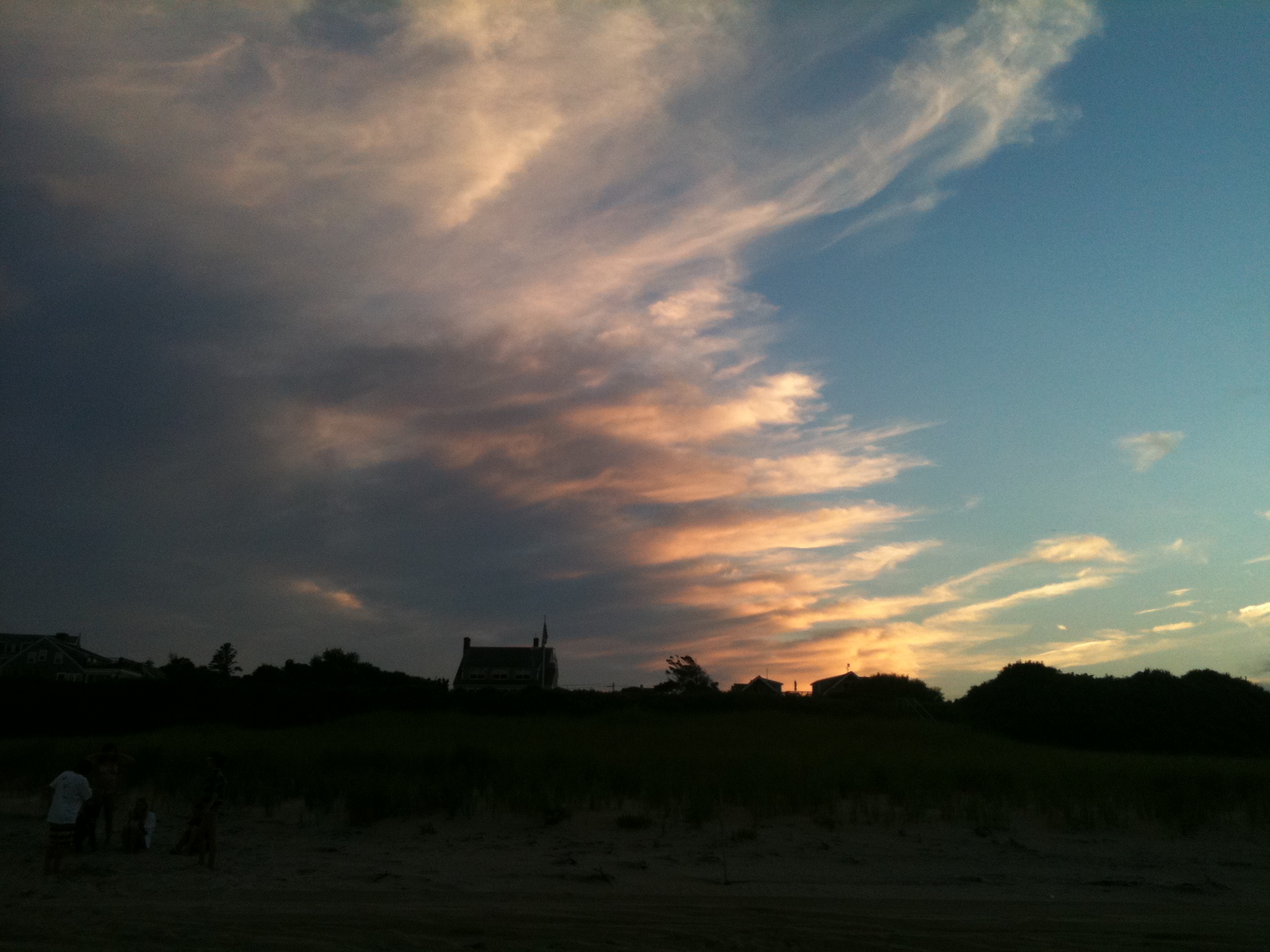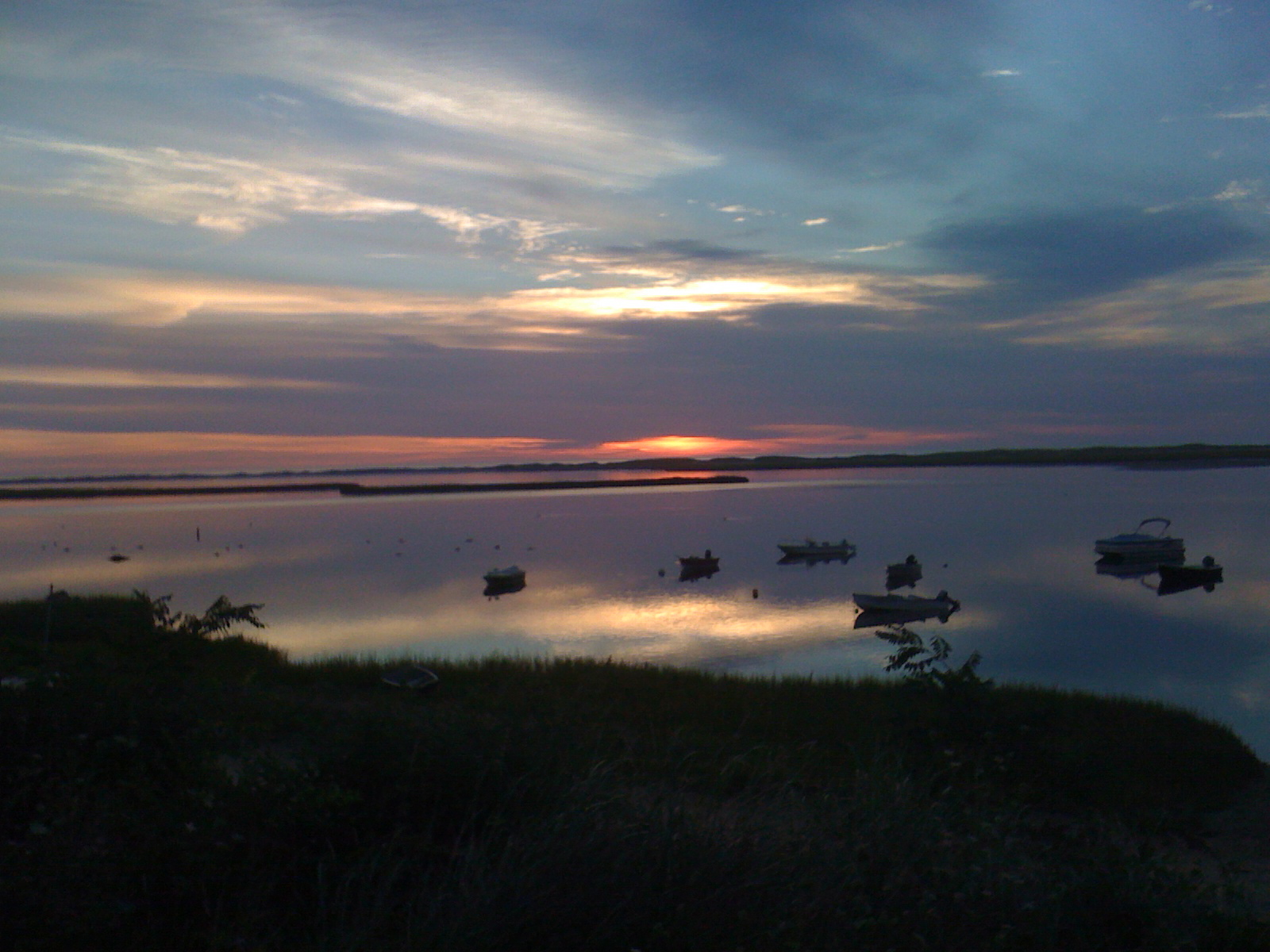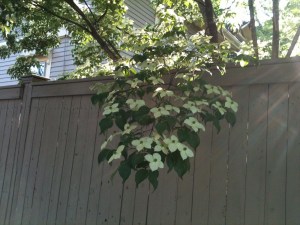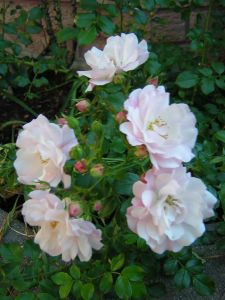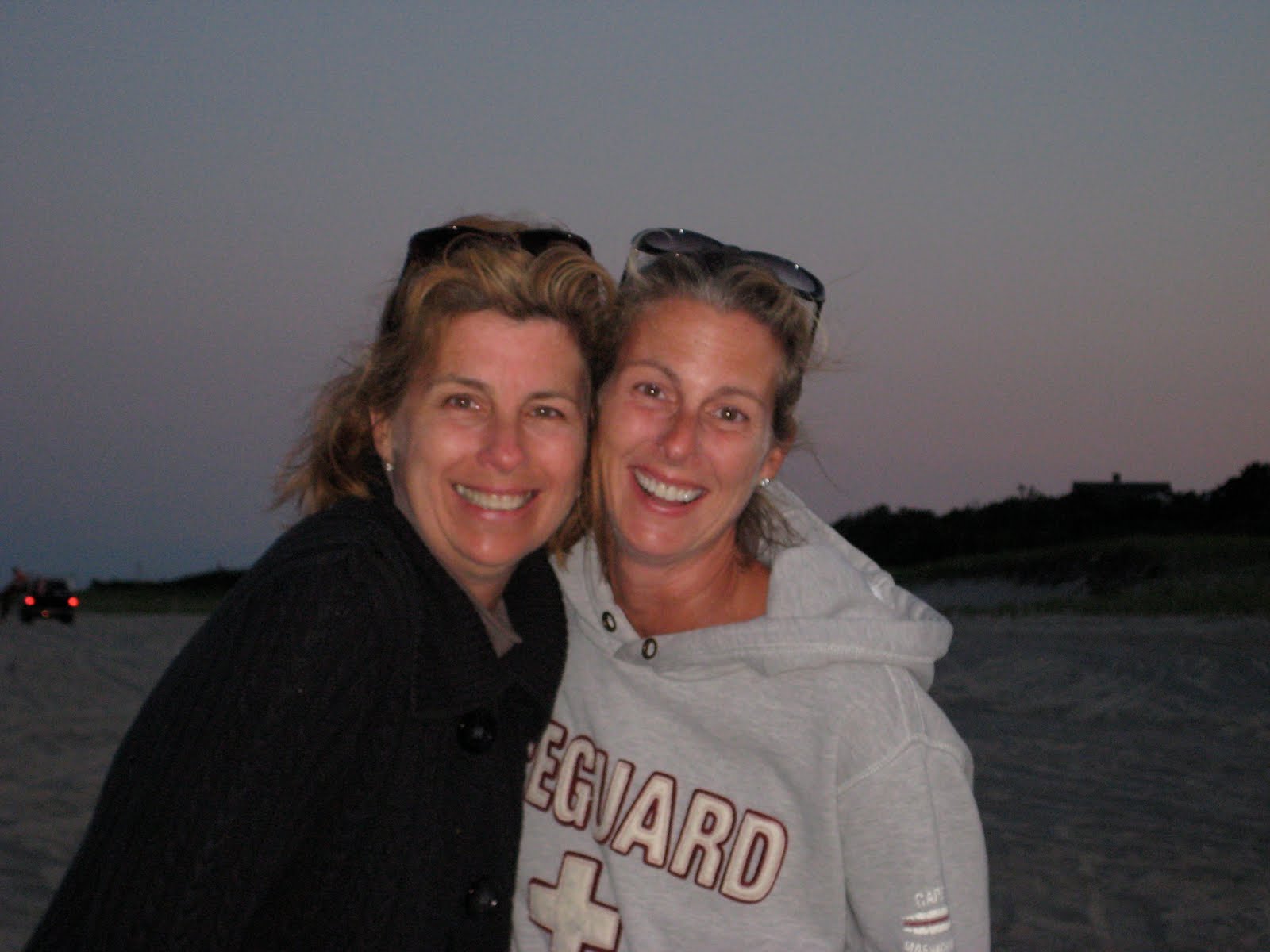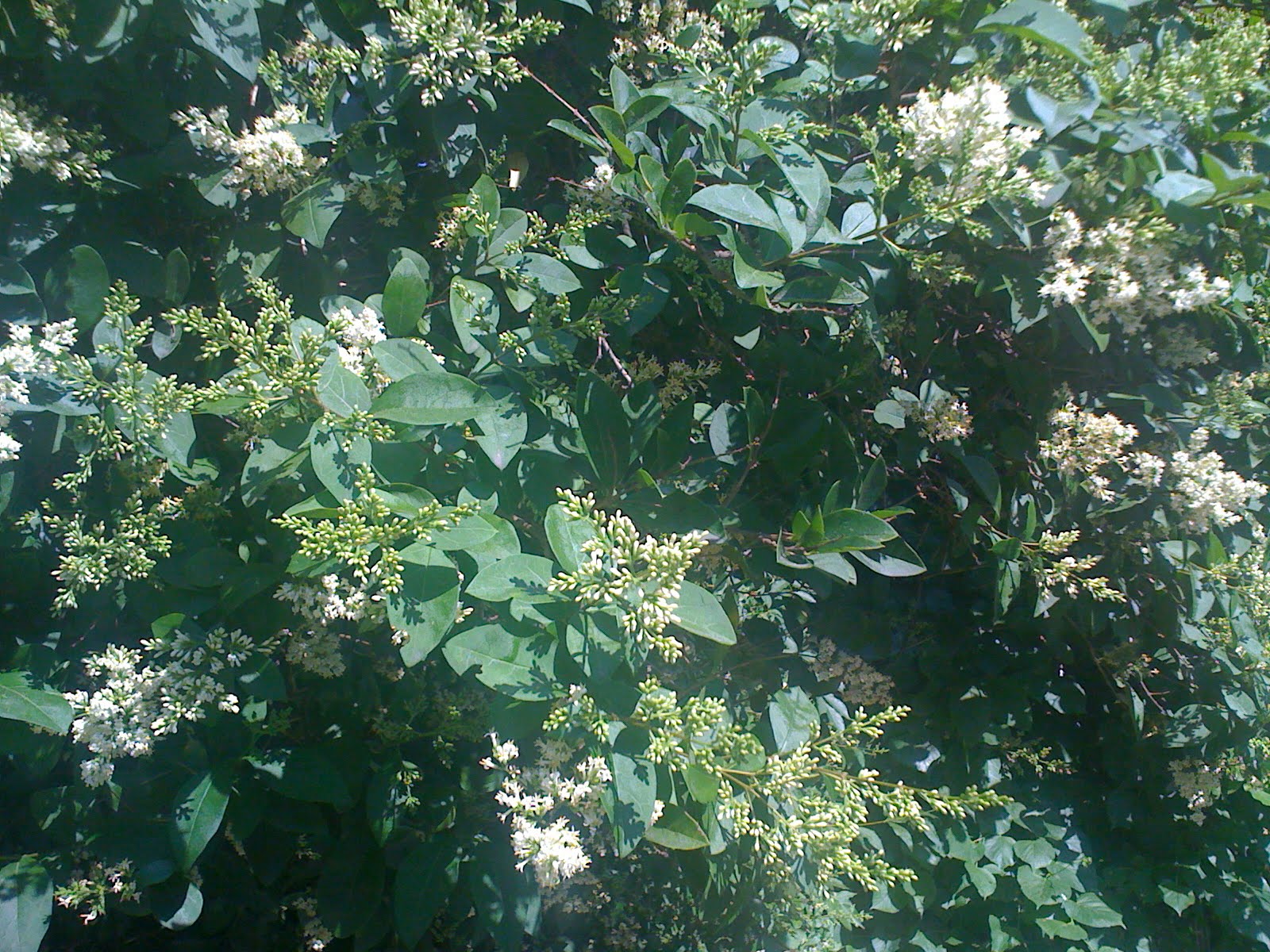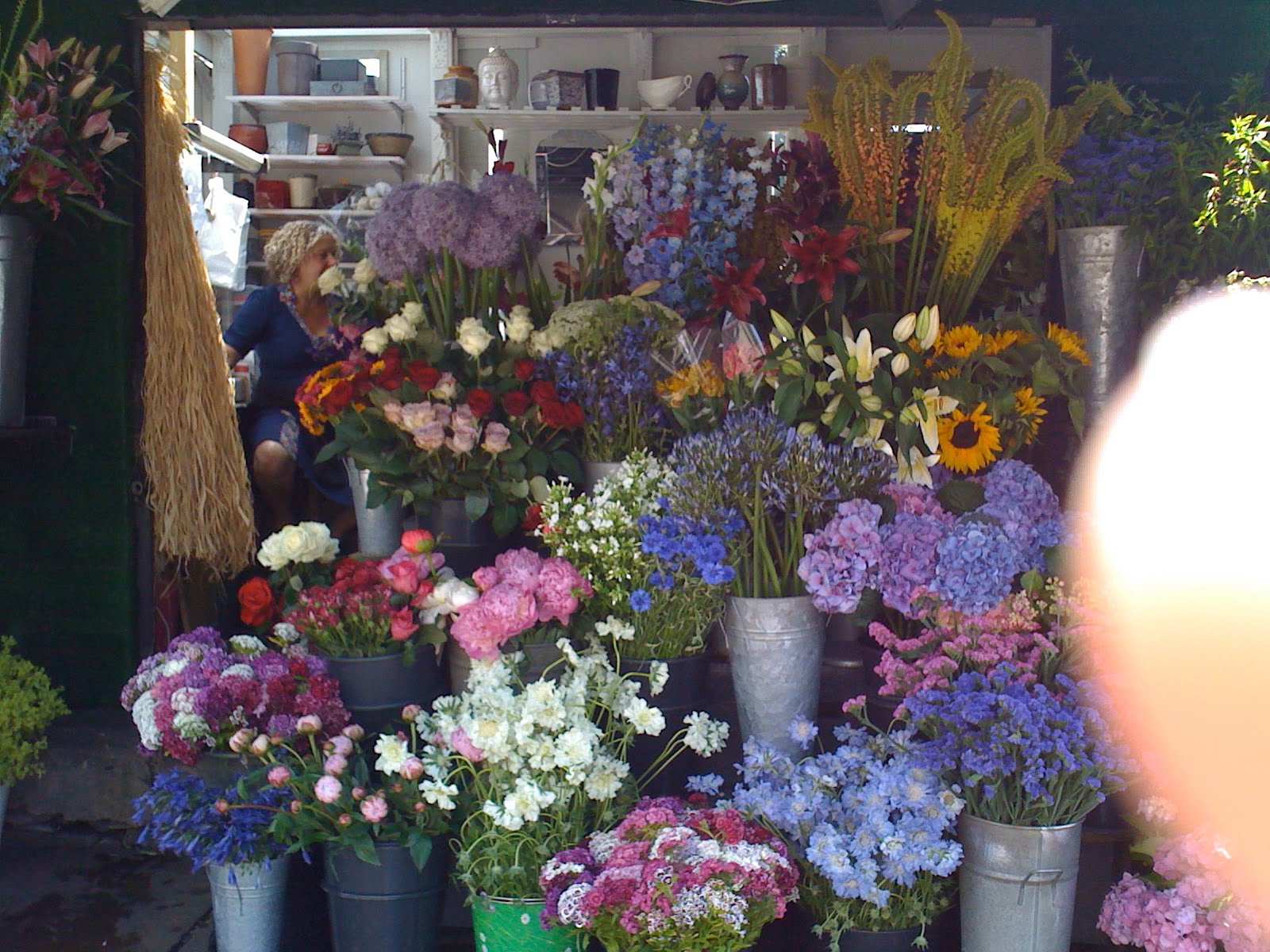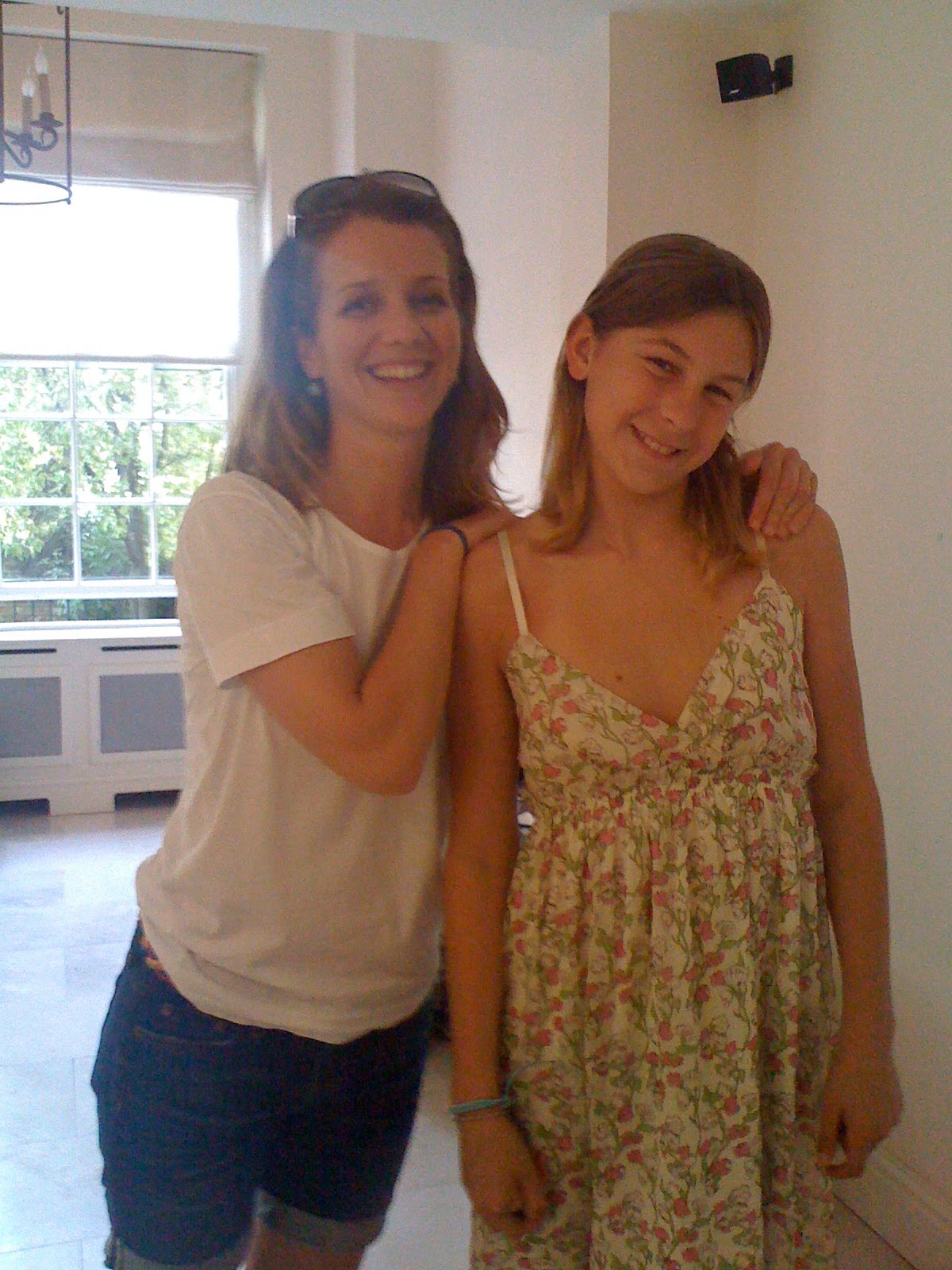It is a fact that I tend toward melancholy. This is not to be confused with having a sentimental streak. THAT I do not. At our recent yard sale—which nearly killed me and several of the shoppers—I all but threw merchandize (including vintage linen and quilts, 60-year old, pristine kid gloves, silver plate whiskey sour muddlers and a set of library steps) at the milling crowd. “Take it,” I screamed, “Just get it out of here!” When a particularly creepy man asked us if there was more to see inside the house I almost told him “Yes, just go in there and strip the joint!”
Right, where was I? Oh yes, melancholy. That’s me. This is my time of year, then. I see the dark at the edges of the light, September whispering down August’s neck and I have a frisson of pleasure. As much as I love summer; the sun, the sea, the surf, the sand, the laundry, the care and feeding of hundreds (no, really, hundreds) of kids and adults (Oh fine, I’ve kind of hit the wall on the care and feeding part), I am glad that I wake a bit later as the sun rises. I am secretly thrilled as I stand on the porch and hug my shoulders in the chill. I am also terrifically sad.
The roses are gone, all but a few “volunteers” who poke up bravely, the Shasta daisies are beheaded, the cosmos ratty, the zinnias leggy and the blackberries all but eaten up by man and beast. The petunias (God, I hate petunias) are limp and slimy and the tomatoes have gone hyperabundant so that when I go to the gym I sneak a bagful onto the reception counter.
The crickets are singing instead of the tree peepers and the beach has emptied out. My sons are back at work and college, my daughter is dreaming of #2 pencils and pink pearl erasers. “Can I get a new backpack?” has replaced “Do we have any surfboard wax?” The shift is absolutely tangible and even the crows have given up their morning meetings on the lawn.
I have always lived at the sharp corner of bitter and sweet. I look at a flower in full bloom and can already feel its death. Even as I pick the nearly translucent lettuce leaves of my third crop, pinch off enough basil to dress the tomatoes, I am mourning their end. In the positively electric glow of pink and orange and velvety deep purple dahlias I see the mold at their roots.
I am inordinately fond of dahlias although they are just one of my favorite flowers. Peonies, sweet peas, privet, lilac and roses are all in that list. It is not lost on me that each of these is terribly fragile in their natures. Their season is brutally short; their blossoms last a matter of days at best. And, while their colors can be vivid, eye-catching, shocking almost, there is something particularly pleasing about the soft wash of pink and, pale yellow or lavender that marks the earliest flowers. The scent of a new rose ranges from lemon to peach to your mother’s dressing table—provided your mother is Blanche Dubois, as mine often was. The smell of a cultivated sweet pea catches cloyingly in your throat. That of a wild one flies over the rock walls and tumbling dunes in a whisper-soft touch of clear water and tea. Privet is sharp and sweet at the same moment and will forever remind me of the early days of childhood summer: biking down to the beach, brushing against a hedge and dodging the bees who got to the flowers first. Dahlias, for their part, have no particular scent although when you cut the stem with a satisfyingly celery-like crunch, there is a whiff of tomato blossom. And as for peonies and lilac, I can be overtaken by an almost Victorian swoon at first sniff. I have an uncanny ability to recall these scents and more in my head so that in deepest winter I am able to reassure myself that summer will come again. I suppose that gift is in part why I’m a good cook (pat to back); I am able to think of ingredients and mix them in my head until I can smell the aroma and very nearly taste the dish itself.
Memory is tied to melancholy, I think. Whatever your trigger: sound, scent, sight, it is almost impossible to remember without the hint of loss. After all, what’s remembered is, in fact, gone. Still, I find comfort in melancholy. I remember gazing in exhausted wonder at my infant children and mentally preparing for the day they would dismiss me. And they have, naturally.
I watch the summer sky and picture the ladder of clouds that will stack up over the ocean in the fall. The smell of gin and tonic not only recalls July evenings on the lawn but June afternoons in England. Both send a trembling sadness through me because both are done.
Hey, let’s not get all maudlin (or madeleine since we’re on the subject of remembrance), and let me tell you, I do not for a moment feel sorry for myself or indulge in navel gazing (mostly because I have no desire to locate my navel these days). It’s just that I seem to practice a kind of brinkmanship when it comes to happiness. I just can’t quite ‘forget your troubles, come on get happy’ unless I am teetering on the edge of sad. It’s a kind of compare and contrast exercise. Any trouble, or to be more accurate because I am terribly lucky (knock wood), my tendency to see the shadow that defines the light, does in fact make beauty more intense. My children seem more crisply outlined as they walk away, my garden both heavy and weightless in the sun, the striped bass magnificent and tragic as it heads for my table (or the back of the Jeep in this case). I will feel the same in October as the sharp poke of winter nudges at me, the day after Christmas when all the wrapping, the stockings, the snow, the tree itself look tawdry as a streetwalker in daylight. In June I’ll cluck my tongue when the sweet peas give way to the clematis and the leaves on the dogwoods go from a translucent green to a dusty olive.
For now, I will breathe deep of the sharp, acrid scent of marigolds, sweep away the drift of pollen beneath the sunflowers on my table, tuck a last basil plant into the raised bed. I will begin the march toward fall by packing up the unopened box of sea salt, putting the butter in the freezer, gathering the stray clothes pegs from the lawn, putting the boys’ bathing suits away and everyone’s surfboards in the barn. Each of these steps, rituals if you will, is right and proper and signal that I am about to cross the border from season to season.
I do not feel cheated of a single moment and yet, there it is, the twinge of regret, the slight hitch in my step as I give one last look at the receding shoreline of summer.
